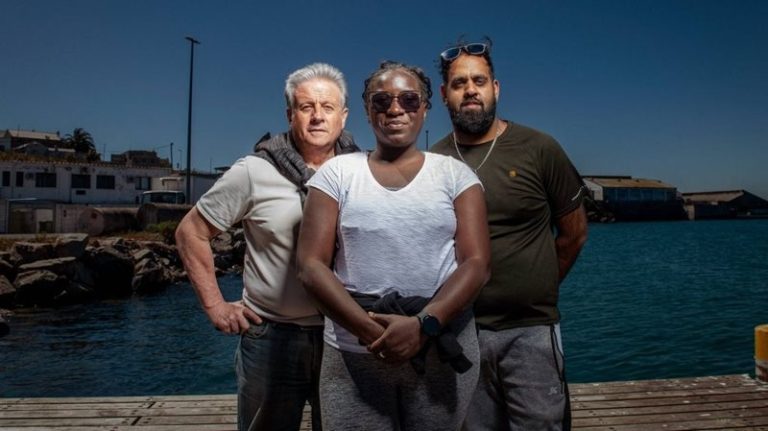SeaH4, an innovative South African enterprise focused on harnessing algae to create a sustainable alternative to traditional fossil fuels, has emerged victorious in the ClimateLaunchpad Global Grand Final 2025, securing a EUR10,000 prize—equivalent to around R205,000—at the event’s climactic gathering in Vienna. This triumph underscores the burgeoning potential of biotechnology in tackling climate imperatives, particularly in hard-to-abate sectors like maritime and air travel. According to Disrupt Africa, the win not only validates SeaH4’s proprietary process but also highlights South Africa’s rising stature in the global cleantech arena, where local startups are increasingly bridging innovation gaps with practical, scalable solutions.
Launched in 2014 as a modest European initiative, ClimateLaunchpad has evolved into the planet’s premier accelerator for early-stage green ventures, nurturing ideas that span clean energy to resilient urban infrastructures. The 2025 edition spanned eight pivotal domains: clean energy, food systems, circular economy, blue economy, sustainable mobility, urban solutions, adaptation and resilience, plus a category for emerging breakthroughs. Over the years, the programme has empowered more than 5,000 entrepreneurial squads across 97 nations, catalysing over EUR500 million in follow-on funding for alumni projects. As reported by ClimateLaunchpad’s annual impact report, this year’s expansion incorporated nine fresh markets—Argentina, Australia, Brazil, Japan, Singapore, Mexico, Peru, Hong Kong, and Vanuatu—with ambitions to span 50 countries in 2026 and a century by 2030, amplifying its reach in underserved regions.
SeaH4’s standout entry captivated judges with its algae-derived biofuel, engineered to slash emissions in marine propulsion and aviation engines without necessitating overhauls to existing hardware. The technology leverages microalgae cultivated in saline environments, yielding a drop-in replacement that maintains combustion efficiency while achieving near-zero net CO2 output when integrated into closed-loop fleets. VentureBurn details how the process—drawing on photobioreactor advancements—converts waste CO2 into biomass via photosynthesis, then refines it into kerosene-like fuels compatible with current infrastructure, potentially cutting aviation’s 2 per cent share of global emissions by up to 80 per cent in targeted applications.
Competing against finalists from 40 nations amid a pool of over 2,700 submissions, the Cape Town-based team showcased rigorous prototypes and lifecycle analyses, proving viability from lab to lighthouse. Their approach resonated particularly in the blue economy theme, addressing the International Maritime Organization’s mandate for 50 per cent carbon intensity reductions by 2050. According to Engineering News, SeaH4’s edge lay in its adaptability: the fuel extends engine longevity in a transitioning world, sidestepping the pitfalls of synthetic alternatives that demand pricier feedstocks like green hydrogen.
This accolade arrives amid a surge in bio-based fuels, with the global sustainable aviation fuel market projected to exceed $20 billion by 2030, per BloombergNEF. SeaH4, founded in 2022 by a quartet of marine biologists and chemical engineers, has already piloted trials with regional shipping firms, demonstrating 15 per cent efficiency gains over conventional marine diesel. The prize money will fund scale-up trials, including partnerships with the South African Maritime Safety Authority to certify blends for commercial vessels. Bizcommunity notes that such validations could unlock grants from the Green Climate Fund, where African projects received $1.5 billion in 2024 alone for low-carbon innovations.
Broader implications ripple through South Africa’s startup ecosystem, where cleantech funding hit R2.5 billion last year, buoyed by incentives like the Critical Minerals Strategy. SeaH4’s success mirrors peers such as Ideia, a Johannesburg outfit blending AI with waste-to-energy, underscoring how homegrown ingenuity can leapfrog fossil dependencies. As ITWeb observes, the victory bolsters Vienna’s role as a nexus for impact investing, with past winners like Sweden’s seaweed packaging firm attracting unicorn-level valuations.
For SeaH4, the finale caps a whirlwind journey from national heats in Johannesburg—where it bested 150 local entries—to international glory, affirming that resource-scarce innovators can lead the charge against climate inertia. With algae’s untapped yield—up to 10 times that of terrestrial crops—their blueprint promises replicability across arid coasts, from Namibia to Indonesia. In a year when COP30 looms, this South African spotlight not only fuels one venture but ignites a template for equitable, ocean-sourced progress.


